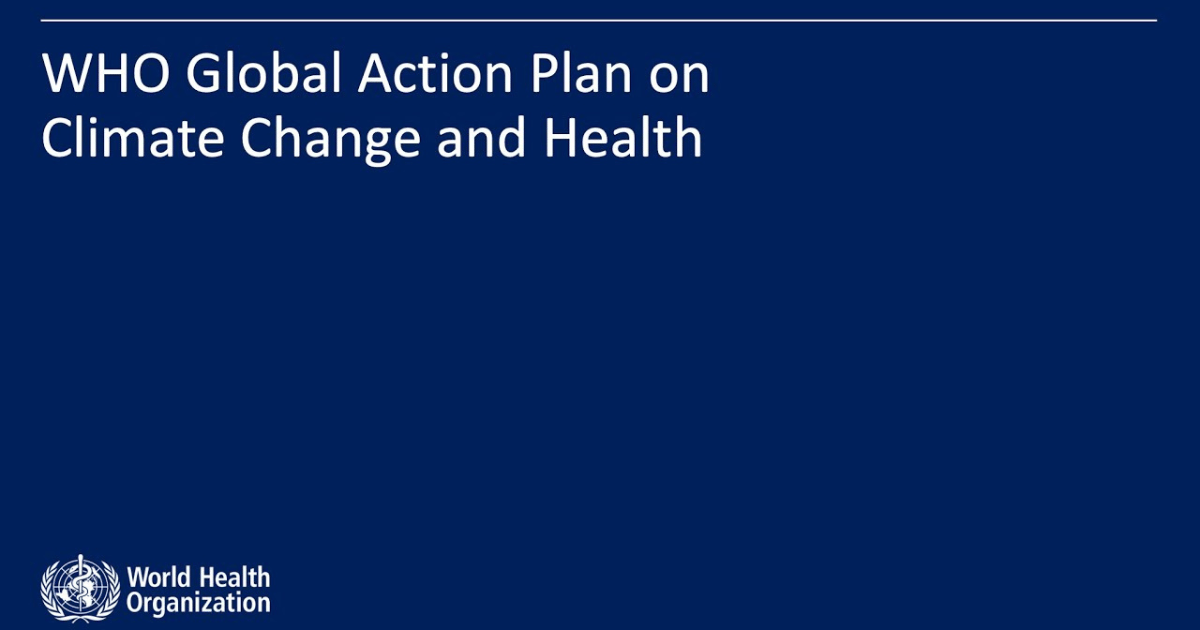
From the newsletter
On 27 May 2025, the WHO Climate Change and Health Action Plan was adopted during the 78th World Health Assembly (WHA) to tackle the increasing health impacts of climate change by strengthening both global and national health systems. Our analysis reveals that two other major climate-health policies were launched in the past three months.
During the same 78th World Health Assembly, WHO member states adopted the first-ever Pandemic Agreement. This agreement establishes a system to reserve 20% of vaccines, treatments and diagnostics for WHO-led distribution, ensuring timely and equitable access during future pandemics.
In June, Smart Africa and GIZ signed a Strategic Cooperation Framework on Digital Health to support the creation of the African Health Data Space, a cross-border system for sharing health data. The goal is to enhance access, reliability and utilisation of health data among African Union member states.
More details
The WHO Climate Change and Health Action Plan was developed by WHO through an extensive consultative process involving member states, civil society and technical experts. It was requested under WHA77 resolution. The plan aims to address the growing health impacts of climate change by strengthening global and national health systems. Contents include guidance on integrating health into climate policies, promoting climate-resilient health systems, improving health-sector emissions, supporting research and data systems and increasing access to climate-health finance.
The pandemic agreement, the second international agreement negotiated under Article 19 of the WHO Constitution, is the outcome of over three years of negotiations, driven by the inequities highlighted during the global COVID-19 response. It serves as a central pillar of the Pathogen Access and Benefit Sharing (PABS) system. Adopted by consensus in a plenary session at the 78th World Health Assembly, the agreement had already progressed through the committee stage with 124 votes in favour, none against, and 11 abstentions. It establishes a framework for enhanced international cooperation in pandemic prevention, preparedness, and response.
Under the agreement, the WHO will allocate supplies based on public health risk and need, prioritising developing countries. The aim is to prevent the supply imbalances that occurred during COVID-19, when low-income nations experienced delays in accessing life-saving products. Importantly, the agreement clarifies that it does not infringe upon national sovereignty; the WHO will not have the authority to impose travel bans, lockdowns, or public health mandates on countries. Parties maintain full control over their domestic policy decisions.
The Strategic Cooperation Framework on Digital Health targets data compatibility and digital health integration, including harmonised regulation. It also sets out to build governance frameworks for ethical handling of health data. It builds upon existing efforts to digitise health systems across the continent. It promotes collaboration among governments, health institutions and technology partners to implement standards-based health data exchange. Additionally, it aims to align with global protocols to ensure that the systems are robust, secure and internationally interoperable.
Unified health data is vital for managing future pandemics and scaling digital health systems in Africa. Accurate, accessible, and timely health data enables clinicians to identify emerging threats, track outbreaks in real time, and plan targeted responses. It also supports evidence-based decisions, algorithm-driven diagnostics, and predictive modelling through AI and machine learning, improving treatment outcomes and reducing hospital stays. Without unified data systems, Africa remains susceptible to fragmented healthcare delivery and is ill-prepared for rapid public health emergencies.
Our take
Policies are only as strong as the money and mechanisms behind them. Less than 1% of climate finance currently goes to health, leaving African systems dangerously underfunded.
The WHO’s plan calls for integration with multilateral funds, but access remains a barrier. Developing countries need clear pathways to unlock climate-health finance at speed and scale.
Without sustained investment, climate-health ambition risks becoming another cycle of declarations without delivery. Finance access must become a benchmark of success for these new frameworks.